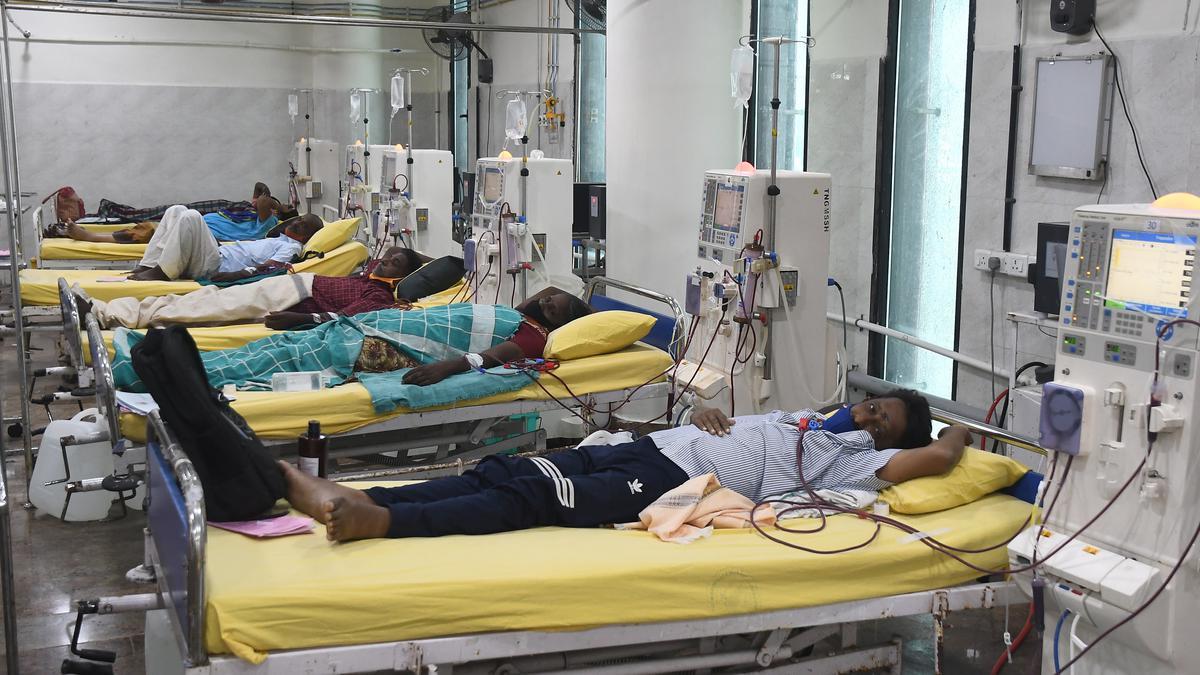
Doctors oppose move to look at PPP models for haemodialysis services
The Hindu
Tamil Nadu Health Department's plan for haemodialysis services under PPP model sparks controversy among doctors and officials.
The Tamil Nadu Health Department’s latest move, which is in its early stages, to develop a road map for haemodialysis services by also looking at Public Private Partnership (PPP) models has turned into a contentious issue. A section of doctors, who strongly opposed the move, have flagged several concerns.
The National Health Mission (NHM), Tamil Nadu, has constituted an expert committee to develop a comprehensive ‘Policy driven road map for implementing haemodialysis services’. The committee headed by NHM’s Mission director has 19 members including officials, nephrologists and representatives from not-profit and private organisations providing dialysis services.
Some of the objectives of the committee have turned into a contentious issue : to study and document best practices under government and PPP models for haemodialysis units, with a focus on recommending suitable modalities/options for effective implementation and to analyse financial aspects for operationalising dialysis services under PPP model.
While health officials maintained that there were no plans to privatise dialysis services, an official said, “This was to analyse where we stand and to look at the best practices in both government and PPP models. The committee is to plan the way forward.”
But doctors have raised a number of issues. P. Saminathan, president, Service Doctors and Post Graduates Association, said haemodialysis services in the rural hinterland of Tamil Nadu improved because of dialysis services in government hospitals. “We have dialysis units in government tertiary care facilities, and in at least 70% of secondary care institutions. These units are running smoothly and nowhere are patients refused dialysis for want of manpower or for want of infrastructure. Why should such a smooth-running system be privatised,” he questioned.
A doctor, who did not want to be named, noted that the problem stemmed with the State not having an adequate number of dialysis technicians. Those who were recruited were paid low and in many cases, paid through hospital resources.
“Now, the health department wants to outsource dialysis units. PGs are trained in dialysis, and if the units are outsourced to a third party, they cannot enter the units. What is more disturbing is that the funds generated through the Chief Minister’s Comprehensive Health Insurance Scheme (CMCHIS) by the Departments of Nephrology - a huge portion comes from dialysis - would go to the third party,” he said.

The Karnataka government has drafted a comprehensive master plan for the integrated development of Kukke Subrahmanya temple, the State’s highest revenue-generating temple managed by the Hindu Religious Institutions and Charitable Endowments Department. The redevelopment initiative is estimated to cost around ₹254 crore and aims to enhance infrastructure and facilities for devotees.












